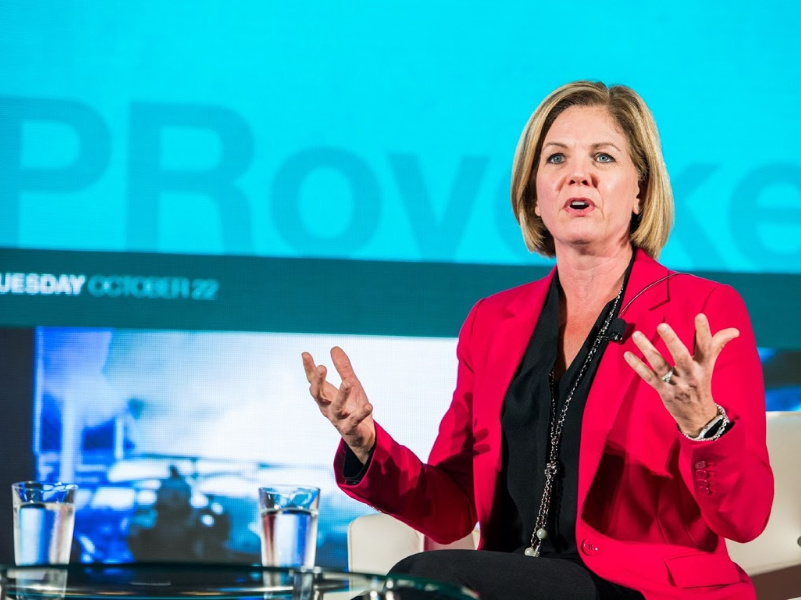Paul Holmes 22 Oct 2019 // 3:33PM GMT

WASHINGTON, DC— Financial performance is no longer enough to drive corporate reputation in a world where politics and social issues provide a constantly changing backdrop against which companies are judged, said Jennifer “JJ” Davis, senior vice president, global communications at Dell, discussing “Politics, News Fatigue and How Brands Can Matter More” at PRovoke19 this morning.
Underscoring the point, she told a story from earlier this year. “Dell went public in December of 2018, five years after going private in order to transform outside the glare of Wall Street, and we came back to a highly politicized environment, here and with Brexit and trade with China. We had our first quarter earnings in May and it was a mixed message, but we were feeling pretty good, and then the night of our earnings release, President Trump tweeted that we would put a tariff on trade with Mexico and our stock fell 10%.
“The relationship now between investor relations and government affairs and corporate reputation is greater than it ever was before. We have meetings between those functions on a regular basis now just to focus on trade issues and how they impact various stakeholders. Financial performance is no longer enough to drive corporate reputation. It’s also social impact.”
Davis appeared in conversation with Michelle Rios, executive vice president at MWWPR, and discussed the increased difficulty of crafting messages and stories that not only cut through the highly-charged news environment but also are crafted in a way that anticipates any controversy.
“There [are] technology conversations we want to own, like AI or edge computing or the cloud,” said Davis. “How do we deal with issues like balance in AI, or like security and edge computing? And before you try to drive a big conversation you need credibility in that space to even be talking about it.”
Sometimes the company is focused on issues that have an obvious connection to its core business. “We develop technology to advance human progress. In the first 35 years of our company we were focused on getting tech into the hands of more people. But today it’s more about the transformative nature of data and how we can use data to drive meaningful change. That means one of our critical issues is privacy and data protection.
“We advocate for national legislation—not state by state—to ensure that our customers’ data are protected. We are advocating for data protection and security, and we are a voice for privacy issues.”
But the company has also taken strong positions on issues that are not core to Dell’s business. Said Davis, “LGBTQ issues are important to us, and to our employees and their ability to bring their authentic selves to work. We were on the steps of the Texas capitol, arguing against the bathroom bill, for example.”
Taking strong positions makes controversy unavoidable but the company has developed an integrated approach to responding to any challenges.
“We have to make sure our social media is aware of our positions on these issues, that our customer service people are aware,” said Davis. “We have 150,000 employees around the world and they are our brand advocates around the world, and so we have to make sure all of them understand our positions and are armed to response.”
One specific issue that required a quick response was the company’s ad buying strategy.
“We were called out for advertising on Tucker Carlson, when he was called out for racially insensitive issues that were antithetical to our values,” said Davis. “We pulled our advertising and we made a statement that said basically ad buying is complicated, and we made a mistake. And what happened was that data told us from our social media listening tools, we got a lot of credit for admitting a mistake and moving quickly and taking action.
“It was a very transparent and open approach to the issue and it was based on an honest commitment to our values.”


































.jpg)
















